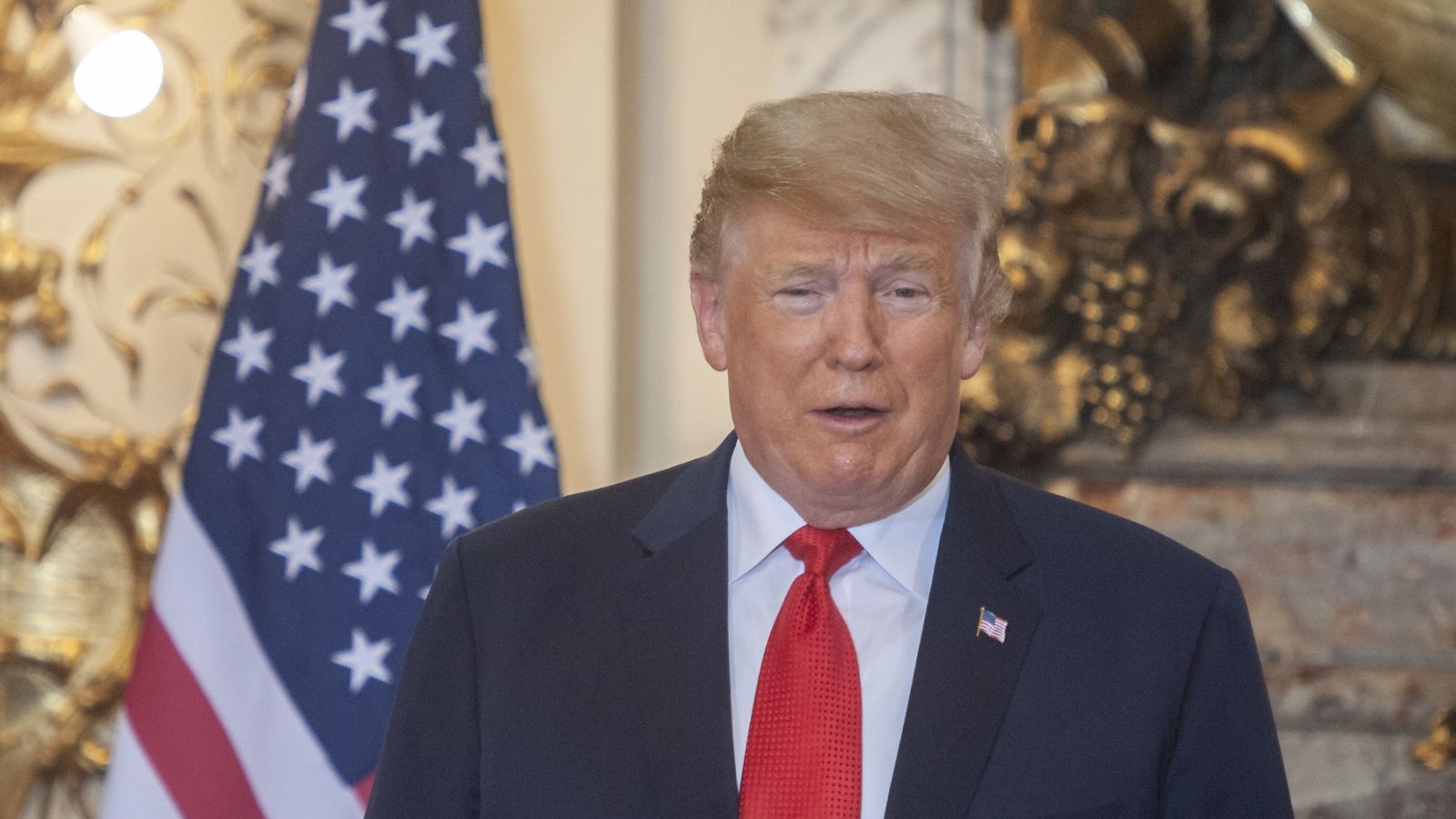Former President Donald Trump is facing challenges to his eligibility for the 2024 elections, specifically in Illinois, as petitions argue that his alleged involvement in the Jan. 6 breach constitutes a violation of Section 3 of the 14th Amendment.
A retired state judge and Republican, Clark Erikson, presided over a petition hearing, recommending that the election board should not decide on Trump’s disqualification, citing the need for sophisticated constitutional analysis.
This article explores the complexities of this legal battle and its broader implications.
The Judicial Perspective
Erikson, in a written recommendation to the Illinois State Board of Elections, emphasized the limitation of the election board in addressing constitutional issues.

He stated, “It is ‘impossible’ for the board to decide whether the GOP candidate is disqualified by Section 3 without engaging in ‘significant and sophisticated constitutional analysis.'”
Erikson likened resolving this matter at an election board hearing to a futile attempt, suggesting that such constitutional issues are better suited for the courts.
Read More: Trump Secures Fourth Nobel Peace Prize Nomination: Unraveling the Abraham Accords Legacy
Quoting Erikson
“It is ‘impossible’ for the board to decide whether the GOP candidate is disqualified by Section 3 without engaging in ‘significant and sophisticated constitutional analysis,'” he wrote.
Trying to resolve this constitutional issue within an election board hearing schedule is “akin to scheduling a two-minute round between heavyweight boxers in a telephone booth.”
The Decision Loom
The Illinois State Board of Elections is set to vote on the petition, and Erikson recommends its dismissal, allowing Trump to be listed on the ballot.
However, if the board decides otherwise, Erikson contends that enough evidence was presented during the hearing to prove that Trump “engaged in insurrection.”
The bipartisan panel, composed of four Republicans and four Democrats, will make the final decision, with the possibility of appeals in state courts.
Quoting Ron Fein
Ron Fein, legal director of Free Speech For People, and co-lead counsel in the petition, expressed confidence in Judge Erikson’s analysis.
He expects the election board and the courts to “uphold Judge Erikson’s thoughtful analysis of why Trump is disqualified from office.”
National Ramifications
This legal battle in Illinois mirrors similar attempts in other states to block Trump from ballots.
In Michigan and Minnesota, lawsuits were dismissed on procedural grounds, while in Colorado, the Supreme Court ruled against Trump.
The U.S. Supreme Court is set to hear oral arguments on Feb. 8, with President Trump appealing the decision and arguing against Section 3’s application to his case.
Also Read: UAW President Counters Trump’s Criticism with Strong Endorsement of Biden
Quoting President Trump’s Attorneys
“Efforts are underway in more than 30 states to remove President Trump from the primary and general-election ballots based on similar rationales.”
The U.S. Supreme Court “should put a swift and decisive end to these ballot-disqualification efforts, which threaten to disenfranchise tens of millions of Americans and which promise to unleash chaos and bedlam if other state courts and state officials follow Colorado’s lead and exclude the likely Republican presidential nominee from their ballots.”
State-Specific Developments
President Trump has also faced disqualification in Maine, where Secretary of State Shenna Bellows, a Democrat, issued a ruling in late December.

However, the Maine Superior Court has temporarily stayed the disqualification, awaiting the U.S. Supreme Court’s decision.
Conclusion
As the legal battles unfold, the question of Trump’s eligibility for the 2024 elections remains uncertain.
The decision in Illinois and developments in other states will undoubtedly have far-reaching implications on the intersection of constitutional interpretation, electoral processes, and the political landscape.
The nation watches as these legal proceedings navigate the delicate balance between upholding the law and respecting the democratic will of the people.
Read Next: E. Jean Carroll Celebrates Triumph Over Donald Trump: “We Don’t Need to be Afraid”
